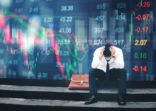Although the world has not yet fully reopened from pandemic lockdowns, most strategists at Natixis IM believe that the economic growth rates in the world’s two largest economies, the US and China, have peaked.
Yet, they are optimistic that growth will continue to support risk assets.
“Growth rates are going to slow from crazy, high peaks, but still remain strong,” said Esty Dwek, Natixis’s head of global market strategy, in a media briefing.
Dwek expects US GDP growth to slow to 8% in Q3, compared with 10% in Q2, but “that’s still strong”, and there will be no falling back to low single rates of around 2% soon.
Meanwhile, “the economic growth slowdown in China is milder than people have feared, and we have also seen policy makers react and cut the required reserve ratio to ensure the deceleration is not aggressive,” she said.
In other parts of the world, the head strategist believes Europe and Japan have the potential to rebound, especially after “a lot of the bad news is priced in markets”, and investor sentiment will improve in Japan after the Olympics games start on Friday.
Sector exposure
The mid-year survey of 42 Natixis analysts found most support for the technology sector, with expectations that it will outperform others for the rest of 2021, followed by healthcare and ESG themes.
Underdogs which could surprise on the upside include the energy and travel sectors, which have suffered during the lockdowns. Indeed, in the long term, Dwek believes the energy sector will be a winner as the world returns to normal. On the other hand, her outlook for the materials sector is gloomy, as China demand for base metals has already peaked.
While the strategists surveyed failed to agree on a single risk being the biggest fear factor in 2022, the French asset manager warned investors about a basket of threats, including rising inflation, over extended valuations, and the spread of covid variants.
“The economy has moved past complacency, but inflation, especially in the US, is a worrying factor,” said Dwek.

















